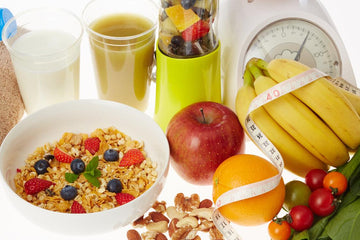Use Whole Milk Not Sugar In Coffee
Table of Contents
| Use Whole Milk Not Sugar In Coffee |
The health benefits of coffee have been well established, coffee can aid in losing weight, reduce headaches, and has even been shown to prevent diabetes.
And coffee’s mind-stimulating effects may contribute to preventing Alzheimer’s disease, other forms of dementia, or chronic diseases like cancer and stroke, according to various other studies. For years, the health community has been saying to limit coffee to one serving a day, but it turns out that coffee can also act as an antioxidant, according to a new study out of Monash University in Melbourne, Australia.
Antioxidants are chemicals that fight free radicals — elements found naturally in the body or in environmental toxins that damage cells and may play a part in causing cancer. Researchers had previously been aware of the antioxidant properties of coffee, some even arguing that coffee provides a better source of antioxidants than even fruits or vegetables, which are known to have particularly high levels of them.
But the new study, published in PLOS ONE, reported that coffee is an antioxidant.
Earlier research had suggested roasting coffee beans could destroy stable antioxidants like chlorogenic acids found naturally in the green coffee beans said to protect the body’s cells from damage.
The researchers watched the behavior of both free radicals and antioxidants throughout the coffee brewing process — and found that under particular conditions, coffee acts as an antioxidant, stabilizing free radicals. So now that you know that coffee is a potent source of antioxidants, what you add to your coffee also affects the antioxidant capacity of coffee.
Coffee acts as an antioxidant, stabilizing free radicals.
If you like your coffee with a little cream or milk, you can stop worrying. A study published in the Journal of Nutrition shows that putting milk in coffee doesn’t affect its antioxidant levels, but it’s best to avoid non-dairy creamers and sugar since this study showed that they reduced the time it took for caffeic, ferulic acid, and isoferulic acid – three antioxidants in coffee – to make their way into the bloodstream.
In the small-scale study, researchers at the Nestlé Research Center had nine healthy adults, who normally consumed between one and five cups of coffee per day, drink either instant black coffee, instant coffee with whole milk added, or instant coffee with a three-in-one product that contained sugar, a vegetable-oil–based nondairy creamer, and premixed coffee.
The researchers found that absorption levels of two phenolic acids were nearly 30 percent lower when people drank the NONDAIRY-creamer coffee than when they drank ordinary black coffee or coffee with whole milk.
Once a week for four weeks, the participants were asked to abstain from drinking coffee, tea, or any caffeinated beverages before coming into the lab for the study, where they were given one of the three coffee options. Then, their blood was collected at various points over a 12-hour period and analyzed for levels of phenolic acids, the healthy antioxidants found in coffee.
The researchers found that absorption levels of two phenolic acids were nearly 30 percent lower when people drank the nondairy-creamer coffee than when they drank ordinary black coffee or coffee with whole milk. They also found that it took longer for the remaining antioxidants in the nondairy-creamer coffee to be absorbed—in some cases 222 percent longer—compared to black coffee or coffee with milk.
Now when you drink your morning cup of coffee you can rest assured you’re getting the antioxidant benefits that coffee offers – even if you add milk. On the other hand, stay away from non-dairy creamers – particularly ones that contain hydrogenated oil – and go light on the sugar. At any rate, enjoy your coffee — its benefits typically outweigh its adverse effects — and as long as you drink in moderation, you can rest assured it’s going to be helping you in some way.
Troup G, Navarini L, Liverani F, Drew S. Stable Radical Content and Anti-Radical Activity of Roasted Arabica Coffee: From In-Tact Bean To Coffee Brew. PLOS ONE 2015M. Renouf, C. Marmet, P. Guy, A.-L. Fraering, K. Longet, J. Moulin, M. Enslen, D. Barron, C. Cavin, F. Dionisi, S. Rezzi, S. Kochhar, H. Steiling, G. Williamson. Nondairy Creamer, but Not Milk, Delays the Appearance of Coffee Phenolic Acid Equivalents in Human Plasma.Journal of Nutrition. 2010, Volume 140, Pages 259-263 |
MUSCLE MEDIA MAGAZINE FOR MEN
The premier source of training, nutrition, supplements, fat loss and health for men.

















